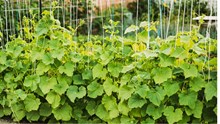
A pest that is “here to stay” – that is how the United Nation’s Food and Agriculture Organisation described Fall Armyworm. An insect that is native to tropical and sub-tropical regions of the Americas, fall armyworm has been spreading so rapidly and so viciously in India, many farmers are in distress over the substantial damage brought to their corn crops by this devastating pest. Corn is integral to the lives of smallholder farmers more important than many of us realise to our food security. To ignore the threat of fall armyworm on corn production is to disregard the farmers whose livelihoods depend on corn and ultimately, we will all pay the price.
The fall armyworm outbreak
An aggressive and resilient pest, we have seen how the fall armyworm rapidly spread across India from Africa. First identified and reported in May 2018, fall armyworm has been attacking corn crops at a lightning pace. An infestation has been observed initially in Karnataka state, rapidly moving on to Maharashtra, Tamil Nadu, Telangana, Andhra Pradesh, Bihar, Chhattisgarh and very recently in north-eastern states of Mizoram, Nagaland, Tripura, Manipur and Meghalaya. Today, more than fifty percent of the country is experiencing the devastating impact of the fall armyworm1.
How can this pest wreak havoc across the country in such a short amount of time?
Asia’s tropical and sub-tropical environment is conducive for its spread. The worm develops into a moth which enables it to spread up to 500km in just a single migration. The name ‘fall’ armyworm is derived from the fact that in its natural habitat in the America’s it breeds during the fall. Here in the tropics, this process is no longer reliant on the seasons. This has meant that it can produce 10 generations of offspring in a year. When left uncontrolled, fall armyworm attacks have the potential to destroy hectares of land, reducing crop yield by as much as 50%2. Moreover, as many as 9 million hectares of land will potentially be infested, compromising the livelihoods of 15 million farmers.
The threat to food security and impact on food prices
We know that corn is a significant crop in India. It is the third largest cultivated food crop. Around 50% of the local grain production is also used for poultry feed. The fall armyworm poses a big threat not only to the livelihoods of small-scale farmers who depend on their crops for food and to make a living but also to food security.
With the pest spreading so rapidly, we are facing the very real issue of corn shortage. With the corn supply being in limited supply; dairy, meat, egg and poultry production– which rely on corn as animal feed – are encountering higher costs of input, resulting in inflationary pressure on the cost of food. Here in India, consumers are already feeling the impact of rising food prices when purchasing chicken and eggs, as farmers are left with no choice but to move away from planting corn.

How we can protect the farmers and our economy against the fall armyworm
The devastation caused by fall armyworm though cataclysmic is entirely preventable. A combined approach of knowledge sharing and training on integrated solutions from seed to harvest is key to sustainably manage the effects of infestations, preventing further damage to the livelihoods of farmers but also mitigating the economic threat the fall armyworm poses.
At Corteva Agriscience, we put the farmers at the heart of what we do. We have the knowledge and the technology needed to empower farmers to protect their crops against this aggressive pest. We have a product that, when used in conjunction with an “Integrated Pest Management” approach, can manage fall armyworm just as quickly as it can spread. Delegate®, our foliar spray, can help to protect crops where fall armyworm is present and also help to prevent infestation. Delegate® has already been approved for use in corn in countries including South Africa, Zambia and Zimbabwe, where it has provided farmers with effective and long-lasting control of fall armyworm. It has also been awarded the prestigious Presidential Green Chemistry Challenge Award for its positive environmental profile and margin of safety toward beneficial insects, so farmers can use it without concern for the health of themselves and their land.
Realising the significant threat of fall armyworm’s arrival to Asia and learning from our experiences in Africa, we are working quickly and closely with governments to ensure that corn farmers are fully equipped with the tools and knowledge to protect their crops. Following the footsteps of Sri Lanka and Thailand, the Government of India’s Ministry of Agriculture and Farmers Welfare has also approved the use of Delegate® on corn, providing farmers across the country with the technology to protect against fall armyworm infestation. Furthermore, a series of training programs across the country, led by Corteva Agriscience, will be conducted to increase awareness of fall armyworm, its damage symptoms, and best practices in the implementation of Integrated Pest Management to educate and empower our farmers in response to infestation. In taking swift and decisive action, we can help to reduce the impact of fall armyworm and make a tangible difference to the lives of millions of farmers across the country.
We cannot allow the damage of fall armyworm to spread further. All industry stakeholders must come together to quickly and decisively deploy all the necessary interventions to stop the spread of this devastating pest. The lightning pace with which this pest spreads should be matched by a rapid yet smart action from all the stakeholders. We need to safeguard the livelihoods of farmers. We need to protect consumers from the impact of rising food prices. More importantly, we need to ensure that access to and intake of essential nutrition are not disrupted due to corn shortage. The fall armyworm is only just starting – it is destroying corn, but it can also destroy more than 80 other plant species including rice, sorghum, millet, sugarcane, vegetable crops and cotton. There is so much at stake if we don’t enable farmer access to the effective integrated solution to combat the fall armyworm.












Share your comments